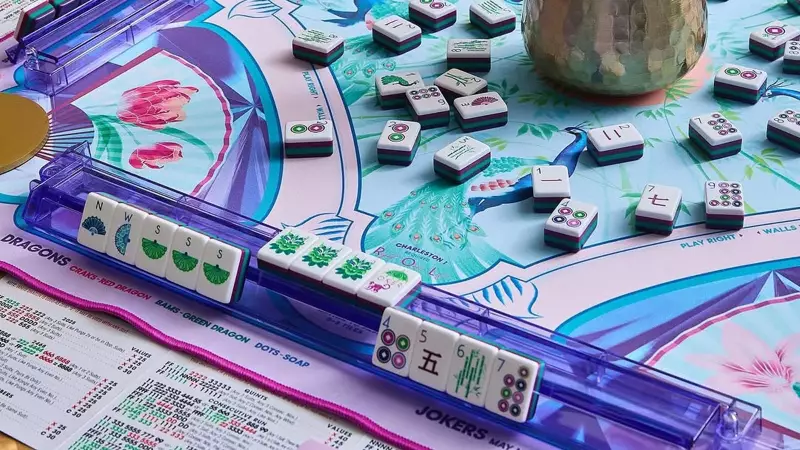
Move over chess and Scrabble - there's a new intellectual powerhouse game capturing the imagination of urban Indians. Mahjong, the ancient Chinese tile-based game that dates back to the Qing dynasty, is experiencing a remarkable renaissance in living rooms, cafes, and community centers across the country.
From Imperial China to Indian Drawing Rooms
What began as an elite pastime in 19th century China has evolved into a global phenomenon, and India is the latest country to embrace this captivating game of strategy, memory, and calculation. Unlike many digital distractions competing for attention today, Mahjong offers something increasingly rare: genuine human connection combined with mental stimulation.
Why Mahjong Is Clicking With Indian Players
The game's appeal lies in its perfect blend of elements that resonate deeply with Indian sensibilities:
- Social connectivity: Typically played by four players, Mahjong creates natural opportunities for conversation and bonding
- Strategic depth: The game requires planning, pattern recognition, and adaptability - skills highly valued in Indian culture
- Cultural familiarity: The tile-matching mechanics feel instinctively familiar to Indians who grew up with similar pattern-based games
- Mental fitness: In an age of digital overload, Mahjong offers a tactile, screen-free cognitive workout
The Urban Mahjong Revolution
Across metropolitan centers like Mumbai, Delhi, Bangalore, and Chennai, Mahjong communities are flourishing. What started as an expatriate hobby has transformed into a mainstream pastime, with game nights, tournaments, and learning sessions becoming regular fixtures in urban social calendars.
"It's not just a game - it's a social experience that brings people together," explains a Mumbai-based enthusiast who hosts weekly Mahjong gatherings. "The clacking of tiles, the strategic discussions, the friendly competition - it creates an atmosphere that digital games simply can't replicate."
More Than Just Entertainment
Beyond its entertainment value, Mahjong offers significant cognitive benefits that appeal to players of all ages:
- Memory enhancement: Remembering discarded tiles and tracking potential combinations sharpens recall abilities
- Strategic thinking: Players must constantly adapt their approach based on opponents' moves
- Pattern recognition: Identifying winning combinations trains the brain to recognize complex patterns
- Decision-making skills: Every move requires weighing risk versus reward
The Future of Mahjong in India
As India's middle class continues to explore new forms of entertainment and social interaction, Mahjong appears perfectly positioned for continued growth. The game bridges generations - appealing to both younger players seeking intellectual challenges and older adults looking for engaging social activities.
With its rich history, strategic depth, and inherent social nature, Mahjong represents more than just a passing trend. It's part of a broader movement toward meaningful, connected entertainment in an increasingly digital world. As one Bangalore player notes, "In a country that loves its card games and strategic challenges, Mahjong feels like it was always meant to be here."
The distinctive sound of shuffling tiles may soon become as familiar in Indian homes as the rustle of playing cards - evidence of an ancient game finding new life in a modern Indian context.





